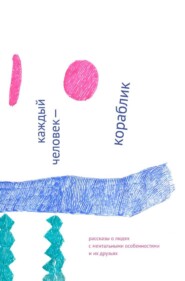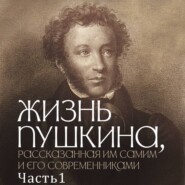По всем вопросам обращайтесь на: info@litportal.ru
(©) 2003-2025.
✖
Best Russian Short Stories
Настройки чтения
Размер шрифта
Высота строк
Поля
"What more do you want of me?" asked Aksionov. "Why have you come here?"
Makar Semyonich was silent. So Aksionov sat up and said, "What do you want? Go away, or I will call the guard!"
Makar Semyonich bent close over Aksionov, and whispered, "Ivan Dmitrich, forgive me!"
"What for?" asked Aksionov.
"It was I who killed the merchant and hid the knife among your things. I meant to kill you too, but I heard a noise outside, so I hid the knife in your bag and escaped out of the window."
Aksionov was silent, and did not know what to say. Makar Semyonich slid off the bed-shelf and knelt upon the ground. "Ivan Dmitrich," said he, "forgive me! For the love of God, forgive me! I will confess that it was I who killed the merchant, and you will be released and can go to your home."
"It is easy for you to talk," said Aksionov, "but I have suffered for you these twenty-six years. Where could I go to now?.. My wife is dead, and my children have forgotten me. I have nowhere to go…"
Makar Semyonich did not rise, but beat his head on the floor. "Ivan Dmitrich, forgive me!" he cried. "When they flogged me with the knot it was not so hard to bear as it is to see you now … yet you had pity on me, and did not tell. For Christ's sake forgive me, wretch that I am!" And he began to sob.
When Aksionov heard him sobbing he, too, began to weep. "God will forgive you!" said he. "Maybe I am a hundred times worse than you." And at these words his heart grew light, and the longing for home left him. He no longer had any desire to leave the prison, but only hoped for his last hour to come.
In spite of what Aksionov had said, Makar Semyonich confessed his guilt. But when the order for his release came, Aksionov was already dead.
HOW A MUZHIK FED TWO OFFICIALS
BY M.Y. SALTYKOV [N.Shchedrin]
Once upon a time there were two Officials. They were both empty-headed, and so they found themselves one day suddenly transported to an uninhabited isle, as if on a magic carpet.
They had passed their whole life in a Government Department, where records were kept; had been born there, bred there, grown old there, and consequently hadn't the least understanding for anything outside of the Department; and the only words they knew were: "With assurances of the highest esteem, I am your humble servant."
But the Department was abolished, and as the services of the two Officials were no longer needed, they were given their freedom. So the retired Officials migrated to Podyacheskaya Street in St. Petersburg.
Each had his own home, his own cook and his pension.
Waking up on the uninhabited isle, they found themselves lying under the same cover. At first, of course, they couldn't understand what had happened to them, and they spoke as if nothing extraordinary had taken place.
"What a peculiar dream I had last night, your Excellency," said the one Official. "It seemed to me as if I were on an uninhabited isle."
Scarcely had he uttered the words, when he jumped to his feet. The other Official also jumped up.
"Good Lord, what does this mean! Where are we?" they cried out in astonishment.
They felt each other to make sure that they were no longer dreaming, and finally convinced themselves of the sad reality.
Before them stretched the ocean, and behind them was a little spot of earth, beyond which the ocean stretched again. They began to cry – the first time since their Department had been shut down.
They looked at each other, and each noticed that the other was clad in nothing but his night shirt with his order hanging about his neck.
"We really should be having our coffee now," observed the one Official. Then he bethought himself again of the strange situation he was in and a second time fell to weeping.
"What are we going to do now?" he sobbed. "Even supposing we were to draw up a report, what good would that do?"
"You know what, your Excellency," replied the other Official, "you go to the east and I will go to the west. Toward evening we will come back here again and, perhaps, we shall have found something."
They started to ascertain which was the east and which was the west. They recalled that the head of their Department had once said to them, "If you want to know where the east is, then turn your face to the north, and the east will be on your right." But when they tried to find out which was the north, they turned to the right and to the left and looked around on all sides. Having spent their whole life in the Department of Records, their efforts were all in vain.
"To my mind, your Excellency, the best thing to do would be for you to go to the right and me to go to the left," said one Official, who had served not only in the Department of Records, but had also been teacher of handwriting in the School for Reserves, and so was a little bit cleverer.
So said, so done. The one Official went to the right. He came upon trees, bearing all sorts of fruits. Gladly would he have plucked an apple, but they all hung so high that he would have been obliged to climb up. He tried to climb up in vain. All he succeeded in doing was tearing his night shirt. Then he struck upon a brook. It was swarming with fish.
"Wouldn't it be wonderful if we had all this fish in Podyacheskaya Street!" he thought, and his mouth watered. Then he entered woods and found partridges, grouse and hares.
"Good Lord, what an abundance of food!" he cried. His hunger was going up tremendously.
But he had to return to the appointed spot with empty hands. He found the other Official waiting for him.
"Well, Your Excellency, how went it? Did you find anything?"
"Nothing but an old number of the Moscow Gazette, not another thing."
The Officials lay down to sleep again, but their empty stomachs gave them no rest They were partly robbed of their sleep by the thought of who was now enjoying their pension, and partly by the recollection of the fruit, fishes, partridges, grouse and hares that they had seen during the day.
"The human pabulum in its original form flies, swims and grows on trees. Who would have thought it your Excellency?" said the one Official.
"To be sure," rejoined the other Official. "I, too, must admit that I had imagined that our breakfast rolls, came into the world just as they appear on the table."
"From which it is to be deduced that if we want to eat a pheasant, we must catch it first, kill it, pull its feathers and roast it. But how's that to be done?"
"Yes, how's that to be done?" repeated the other Official.
They turned silent and tried again to fall asleep, but their hunger scared sleep away. Before their eyes swarmed flocks of pheasants and ducks, herds of porklings, and they were all so juicy, done so tenderly and garnished so deliciously with olives, capers and pickles.
"I believe I could devour my own boots now," said the one Official.
"Gloves, are not bad either, especially if they have been born quite mellow," said the other Official.
The two Officials stared at each other fixedly. In their glances gleamed an evil-boding fire, their teeth chattered and a dull groaning issued from their breasts. Slowly they crept upon each other and suddenly they burst into a fearful frenzy. There was a yelling and groaning, the rags flew about, and the Official who had been teacher of handwriting bit off his colleague's order and swallowed it. However, the sight of blood brought them both back to their senses.
"God help us!" they cried at the same time. "We certainly don't mean to eat each other up. How could we have come to such a pass as this? What evil genius is making sport of us?"
"We must, by all means, entertain each other to pass the time away, otherwise there will be murder and death," said the one Official.
"You begin," said the other.
"Can you explain why it is that the sun first rises and then sets? Why isn't it the reverse?"
"Aren't you a funny man, your Excellency? You get up first, then you go to your office and work there, and at night you lie down to sleep."
"But why can't one assume the opposite, that is, that one goes to bed, sees all sorts of dream figures, and then gets up?"
"Well, yes, certainly. But when I was still an Official, I always thought this way: 'Now it is dawn, then it will be day, then will come supper, and finally will come the time to go to bed.'"

















